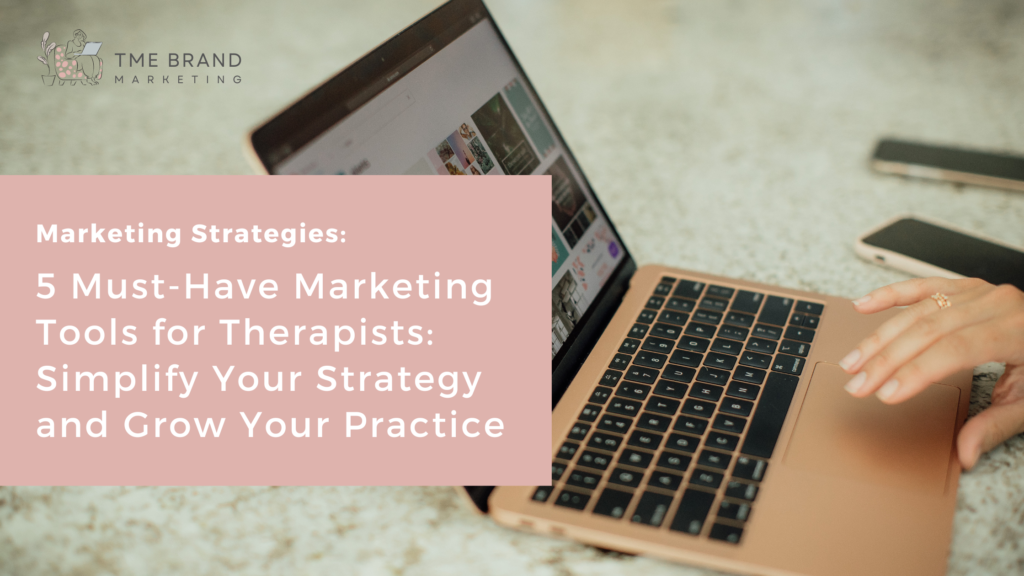
If you’re a therapist running a private practice, you probably already know how overwhelming it can be to balance your clinical work with the business side of things. Between managing client schedules, maintaining records, and handling the endless administrative tasks, marketing can feel like the last thing on your to-do list. But here’s the thing: marketing is essential to growing your practice. And, the best part? You don’t have to do it alone—or spend hours every day on it.
At TME Brand Marketing, we specialize in helping mental health professionals like you build and grow a successful practice. Over the years, we’ve helped therapists simplify their marketing strategies with practical, easy-to-use tools that make it feel less like a chore and more like something you can handle. That’s why we’ve put together this list of five must-have marketing tools for therapists—to help you streamline your efforts and get back to what really matters: your clients.
1. Buffer (or Any Social Media Management Platform)
Let’s face it, social media can be overwhelming. But it’s also one of the most effective ways to build your brand and connect with potential clients. The trick? Consistency. And we get it—posting regularly on Instagram, Facebook, and LinkedIn while managing your practice sounds impossible. That’s where a tool like Buffer comes in. Hootsuite (or other platforms like Hootsuite or Sprout Social) lets you schedule your social media posts in advance, monitor engagement, and track performance across all platforms, all in one place.
With a tool like this, you can batch-create content when you have the time and schedule it for the week or month ahead. That means you can have a consistent presence online without having to be on your phone or computer 24/7. Plus, you’ll stay connected with your audience, building trust and credibility over time.
Pro tip: Use a social media tool to post a mix of educational content, mental health tips, and behind-the-scenes glimpses of your practice to create a personal connection with potential clients.
2. Canva
Whether it’s creating social media posts, website banners, or client resources, we all know that visuals play a huge role in branding. But if you’re like most therapists, you’re probably not a graphic designer. Enter Canva—an easy-to-use design tool that makes creating professional-looking graphics a breeze.
You can choose from thousands of templates, customize them to fit your brand’s look, and have something polished and on-brand in just minutes. The right visuals not only make you look professional but also help you stand out from the crowd. And, honestly, having a go-to design tool saves a ton of time when it comes to building your brand.
Pro tip: Keep your branding consistent—colors, fonts, and logos should be the same across your website, social media, and any printed materials. Consistency builds trust and recognition.
3. Flodesk
As a mental health professional, email marketing might not be the first thing on your mind, but it’s an incredibly powerful way to keep in touch with both current and potential clients. We often recommend Flodesk (or Mailchimp) to therapists because it’s simple, effective, and packed with features like automated email sequences and tracking tools.
With Flodesk, you can create monthly newsletters, send updates about your practice, and offer mental health tips or resources to your audience. Regular email communication is a fantastic way to stay connected with clients, keep them engaged, and encourage them to refer you to others.
Pro tip: Make sure to add a newsletter signup form to your website and social media so potential clients can easily subscribe to receive updates and valuable content.
4. Google Analytics
Having a website is one thing. Knowing how it’s performing is another. That’s where Google Analytics comes in. This free tool lets you track how visitors find and interact with your site. You’ll be able to see which pages are getting the most traffic, how long people are staying on your site, and (most importantly) whether they’re taking action—like booking a consultation.
At TME, we always say that marketing tools for therapists should help you work smarter, not harder. Google Analytics helps you refine your online presence and improve your website so it works better for your business. For example, if a certain blog post is driving a lot of traffic but not converting visitors into clients, you might want to tweak your call-to-action.
Pro tip: Set up goals in Google Analytics to track how many visitors are completing actions on your site, like filling out a contact form or scheduling a consultation.
5. SimplePractice (or Other Practice Management Software)
While SimplePractice is primarily known for managing client appointments and paperwork, it’s also a great marketing tool. It offers a seamless client experience from booking appointments to sending reminders, which makes your practice more professional and client-friendly. In our opinion, marketing tools for therapists should make life easier—for you and your clients.
Some practice management platforms even integrate with your website, making it easy for clients to book appointments online. When potential clients see that your process is smooth and easy to navigate, they’re more likely to trust you and follow through with scheduling an appointment. Plus, happy clients are more likely to refer others.
Pro tip: Use testimonials (with permission) in your marketing materials to highlight how streamlined and client-friendly your practice is.
Final Thoughts: Make Marketing Work for You
We know how overwhelming marketing can feel, but we hope this list of must-have marketing tools for therapists helps simplify things. Whether you’re scheduling your social media posts with Buffer, creating eye-catching visuals with Canva, or tracking your website’s performance with Google Analytics, these tools are here to make your life easier.
At TME Brand Marketing, we’re passionate about helping therapists grow their practices without losing focus on what really matters—your clients. Start small, choose the tools that make sense for you, and build from there. And if you ever need help navigating the marketing landscape, we’re here to support you every step of the way.
Need help with your website?


